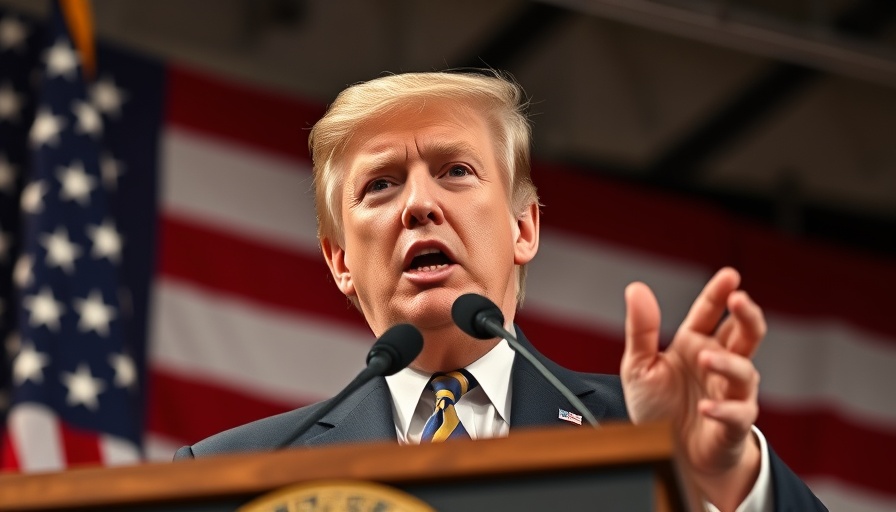
How Trump's Policies Altered the Global Economic Landscape
In 2025, President Donald Trump unveiled a series of sweeping decisions that began to overturn the global economic order just as the United States was experiencing unprecedented economic dominance. Implementing new tariffs and altering trade agreements, Trump's approach signaled a dramatic shift in the U.S. role on the world stage.
The Context of Economic Dominance
The U.S. economy was thriving, marked by low unemployment rates and steady growth. With a firm grasp on international trade, America led the charge in innovation and entrepreneurship. Businesses in sectors from technology to finance flourished, fostering a startup ecosystem that made the Bay Area an epicenter of growth. Yet, this dominance was poised to be challenged by new economic policies.
Understanding the Impact on Startups and Tech Business
As Trump imposed tariffs, the ramifications of these policies were felt across industries. The tech sector, a critical pillar of the Bay Area economy with its array of startups and venture capital funding, faced uncertainty. Many businesses had to reassess their growth strategies amidst fluctuating trade conditions, prompting a wave of discussions around sustainable business practices and corporate responsibility.
Future Predictions: What Lies Ahead?
Looking ahead, it's essential to dissect how these policies might reshape the Bay Area's dynamic economic landscape. As businesses adapt to trade shifts, new opportunities may emerge in areas like digital transformation and sustainability. Innovative companies might pivot their models to not only survive but thrive in a redefined global market, potentially leading to fresh trends in venture capital and business leadership.
Decisions Businesses Can Make in a Changing Economy
Organizations should be proactive when navigating this uncertain landscape. Emphasizing workforce diversity and adopting progressive corporate cultures can position businesses stronger amidst regulatory changes. By fostering agile practices and leveraging local business success stories, companies can create a resilient framework ready to adapt to rapid economic shifts.
Conclusion: Embracing Change in Business
As the global economic order evolves due to these policies, it presents both challenges and opportunities. Business professionals must remain informed and agile to navigate these changes effectively. The current moment offers a chance to explore innovative avenues and reassess strategies to ensure sustainable growth in the ever-changing business world.
 Add Row
Add Row  Add
Add 



Write A Comment